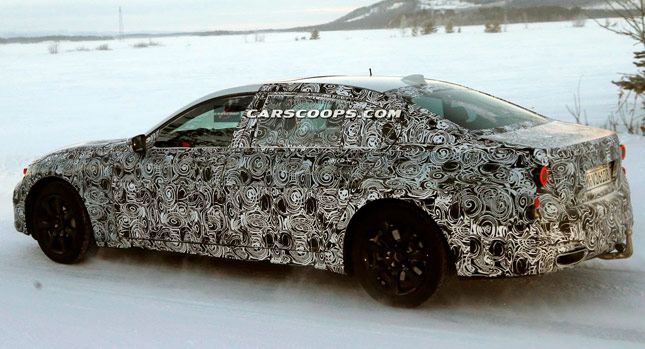Fuelled by increasingly stricter emission regulations and the need for more fuel efficient cars, the trend towards lightweight construction has migrated beyond the boundaries of the sports car segment. BMW has invested heavily on lightweight materials and especially on carbon fiber, not only for its i3, i8 and M models, but for the rest of the range, including the next 7-Series.
Speaking at the 94th Annual General Meeting of BMW AG in Munich, Germany, today, brand boss Norbert Reithofer, confirmed the use of carbon fibre on the upcoming G11-codenamed 7-Series sedan that’s due for an introduction in 2015 and will sport similar design cues to the Vision Concept shown in China.
“BMW i is the spearhead of innovation within the company, with lightweight construction playing a central role,” said Reithofer. “We are now also applying this expertise to other series models. Customers already appreciate the carbon-fibre roofs in our BMW M models. I can also reveal that we will use carbon fibre in the next BMW 7 Series. Its low weight will set a very high standard for the segment,” he said.
Earlier this week, BMW announced plans to triple the capacity of the carbon fiber plant (from 3,000 to 9,000 tons of carbon fiber) it operates with its joint venture partner SGL Automotive Carbon Fibers in Moses Lake, Washington, by investing $100 million on top of the $200 million it has spent so far.
The four-year old site’s expansion will be completed by early 2015 and will make it the largest carbon fiber plant in the world with output equaling about one-fifth of total global demand.
“Due to the automated production processes, the expansion of the site in Moses Lake will make it possible for the BMW Group to apply carbon fiber material also in other model series in the future, at competitive costs and in large quantities,” BMW said in a statement.
By John Halas
PHOTO GALLERY














